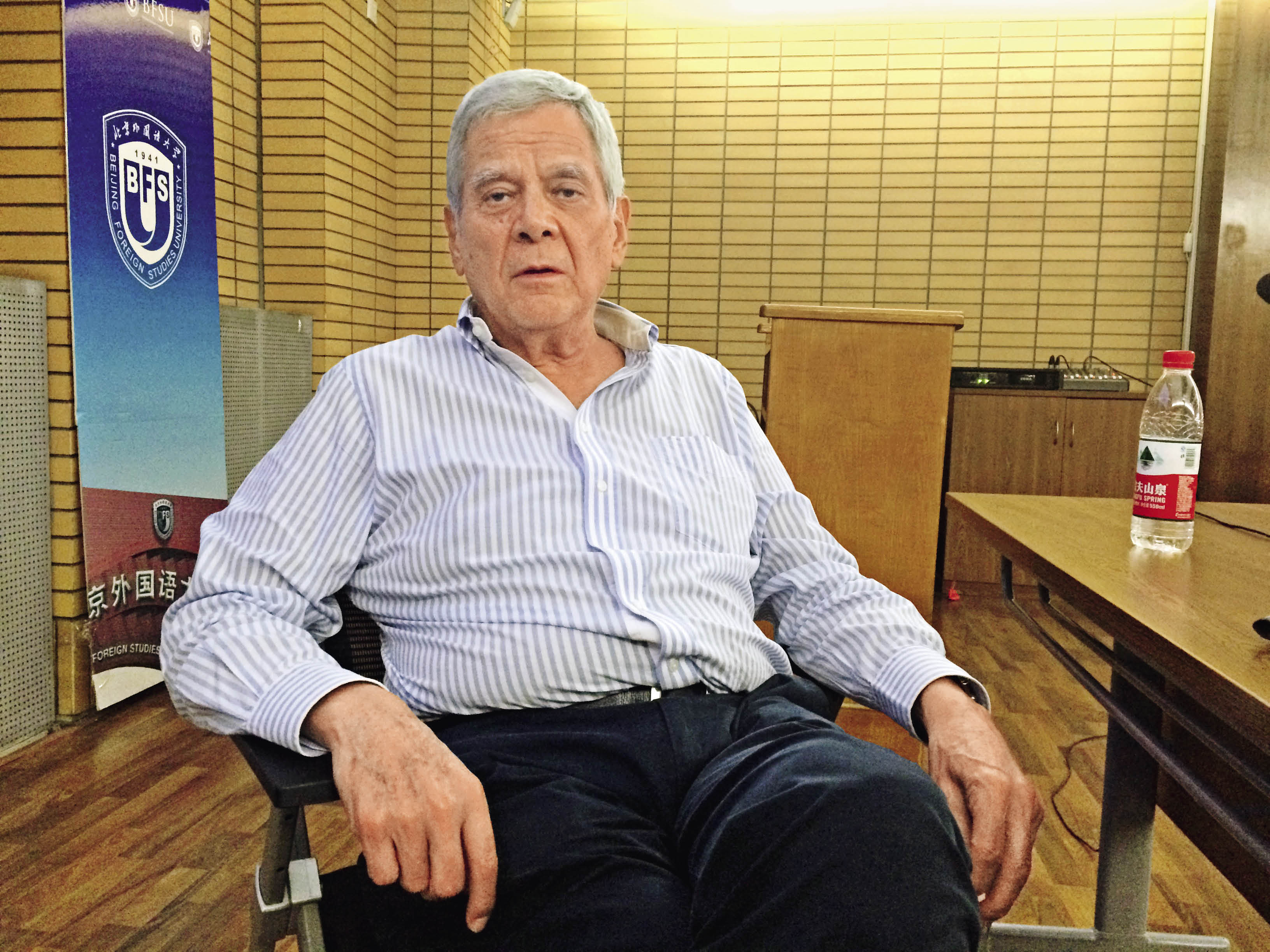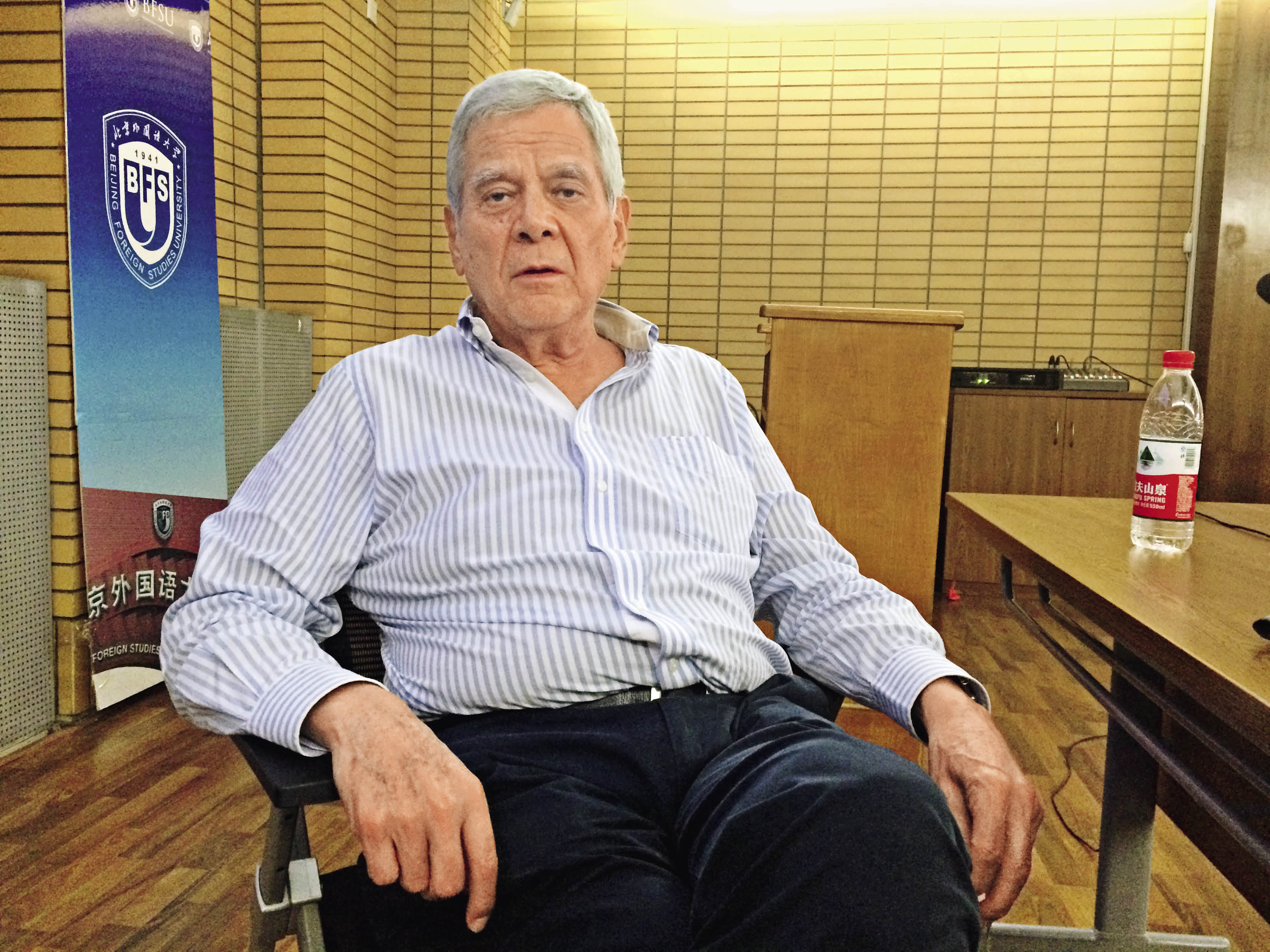"Mexico needs to absorb Chinese capital"—Interview with Eugenio Anguiano
China Today,September 06, 2016 Adjust font size:
When he first came to Beijing, China was a very different country. Eugenio Anguiano is one of the few diplomats who had the opportunity to meet Chairman Mao Zedong in person. Given his years of experience, having twice been Ambassador of Mexico to the People’s Republic of China (PRC) (1972-1975 and 1982-1987), it is salutary to hear his views on China’s development.

“Mexico and China maintained trading with one another during the Cold War years. In 1960, for example, several Mexican civil friendship associations created shops and bookstores to distribute magazines.”Eugenio Anguiano
With Italian scholar Ugo Pipitone, Anguiano coauthored, China: From the Xia Dynasty to the People’s Republic and The People’s Republic of China: From Utopia to Market. After nine years he has returned to the country to give a series of lectures at Beijing Foreign Studies University and Renmin University of China, organized by the China office of the Universidad Nacional Autónoma de México (UNAM).
China Today (CT): You came to Beijing in 1972 as the first Ambassador of Mexico to the PRC. However, formal relations between the two countries actually started before that.
Eugenio Anguiano (EA): The 1899 meeting between the plenipotentiary agents of Emperor Guangxu and General Porfirio Diaz started China-Mexico diplomatic relations. In 1903, the Mexican legation, the first foreign legation ever established under China’s feudal monarchy, came into being. Since then, except for some interruptions, Mexico has had diplomatic missions in China. Mexico and China maintained trading with one another during the Cold War years. In 1960, for example, several Mexican civil friendship associations created shops and bookstores to distribute magazines such as Beijing Review and China Pictorial, so promoting cultural exchanges.
CT: What are your memories of that period when you assumed your post as Ambassador?
EA: It was in October 1972 that both the Chinese Ambassador to Mexico and I presented our credentials on the same day. I presented my credentials to Dong Biwu, one of the founders of the Communist Party of China. Can you imagine? I was 34 and Mr. Dong, 86 years old. He showed much interest in my attendance. Our meeting was ceremonial, through an interpreter, and was supposed to take half an hour, but ended up lasting one and half an hours. It was a happy conversation.
CT: The first Mexican president to visit China was Luis Echeverria, back in 1973.
EA: In April 1973, President Echeverria paid a state visit to China and held a meeting with Chairman Mao, which was very significant because Chairman Mao talked about world politics. He mentioned the United States, the Soviet Union, and Europe as well as Asia, Africa and Latin America. Regarding the latter continents, Mao did not call them ‘Third World,’ but the ‘Third Pole.’ To Beijing, Mexico was an important observation post in Latin America, which was why China opened its door to a Mexican diplomat. I did not talk only with Mao, but also met Premier Zhou Enlai on seven occasions.
CT: What was your impression?
EA: What impressed me most deeply was Premier Zhou’s unusual charm and wit; he was able to win over any foreigner. And there were other great people like him among that generation of Chinese leaders who had led the revolution, won the civil war, and founded the People’s Republic of China.
CT: You returned to China again in 1982, also as Mexico’s ambassador to China. What were the main changes you saw compared to what you experienced in the 1970s?
EA: Between my first and second term as ambassador radical changes had occurred in China. I left China in late 1975 when Mao Zedong, Zhou Enlai, and Zhu De were still alive, before the Tangshan earthquake shook the country and the “Gang of Four” was arrested. When I returned Zhao Ziyang was premier. The following year saw Li Xiannian take office as president. Deng Xiaoping then became leader and started the reform and opening-up drive.
When I first arrived in Beijing in 1972, one could not find a single imported product, even in hotels for tourists. When I returned 10 years later, the first foreign-funded hotels were already here. There were also special economic zones like Shenzhen, which I could visit. I first went to Shenzhen in 1972, when it comprised just a few villages. It was a bucolic area where you might occasionally see one or two small trucks passing by. But by May 1982 Shenzhen was unrecognizable. The city had skyscrapers, and there was also a train connecting Hong Kong with Beijing that passed through the city.
CT: There were substantial changes.
EA: Exactly, although I must say I preferred the China of the 70s. At first there were not so many automobiles, and my whole family went out by bicycle. But progress cannot be measured in just one way. For the Chinese themselves it has been a comprehensive progress. Millions of Chinese touring the world today is another substantial change. My personal taste has no meaning in this overwhelming reality – the transformation of this country.
CT: Currently, what areas do you think are priorities in the China-Mexican relationship?
EA: To sum up what Mexicans think about China is a long story. I think there is a sector of the Mexican population that knows how big and important China is. Now, what should we do? In the economic field we must deepen our talks. We need to absorb Chinese capital to make it play a role in the country’s development together with Mexican domestic investment. We also need to greatly increase awareness of our services. Mexico needs to reinforce the construction of its infrastructure to attract Chinese tourists. And, we need to improve bilateral cooperation in the academia and technology fields. In this aspect, Brazil and Bolivia have overshadowed us, because they have already contracted with China to launch meteorological satellites. Mexico has not taken that step.
CT: How much room is there for deeper academic cooperation?
EA: There is plenty of potential to develop. Some say that Mexico has not done well, but I would not rush to that conclusion because it is impossible to intensify an academic relationship overnight. Mexico and China have been building their relations over the past 40 years, and 40 years in history is a split second.
Drawing the Chinese and Mexican peoples closer is a difficult task. Both have a great deal of ethnocentrism, so it is not easy to make the two totally open their hearts to each other, but we have to do it. I think the two countries have the determination to advance bilateral cultural and people-to-people exchanges. It is a huge challenge, but must be done.
CT: How should Latin America deal with its relationship with China?
EA: Latin Americans have to look to a reshuffle in trade relations with China. It can be solved by agreements that the Chinese government introduced in the CELAC (The Community of Latin American and Caribbean States) last year. The solution is to introduce more Chinese investment in infrastructure projects to help Latin American countries diversify their investments and economic development. I think that is a path towards change. In short, it’s a good way to advance bilateral cultural exchanges and interconnection. There will not be any quick or immediate effect, but it will enhance mutual understanding between the two sides.
CT: In more than 40 years of watching China, what has touched you the most?
EA: Chinese people’s pragmatism is impressive. The other thing I have noticed is the slight change in China’s diplomatic language. The term “Chinese Dream” has become a fresh expression in the language of world diplomacy.

